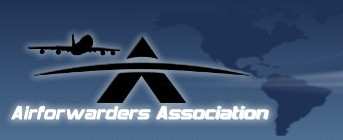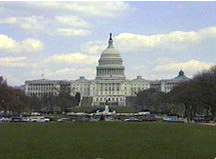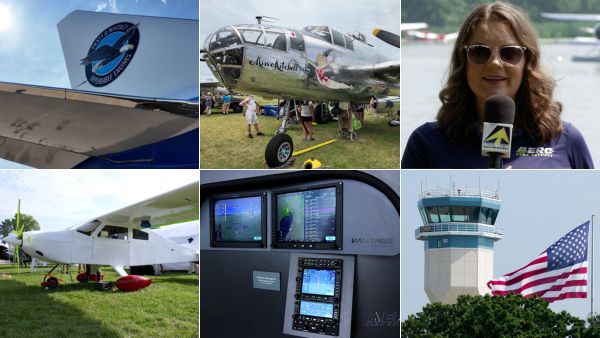Thu, Nov 18, 2010
Urges Better Harmonization, Cooperation And Intelligence-Based
Solutions
 The Airforwarders Association on Wednesday called on Congress
to work with TSA and CBP to implement a risk-based assessment
program for securing inbound air cargo. International cooperation
will be required to improve security -- this necessitates a
harmonized security program and one that is holistic in including
passenger and all-cargo aircraft. Domestically, efforts already
underway with TSA and CBP to share data and best practices must
continue to achieve meaningful increases in security.
The Airforwarders Association on Wednesday called on Congress
to work with TSA and CBP to implement a risk-based assessment
program for securing inbound air cargo. International cooperation
will be required to improve security -- this necessitates a
harmonized security program and one that is holistic in including
passenger and all-cargo aircraft. Domestically, efforts already
underway with TSA and CBP to share data and best practices must
continue to achieve meaningful increases in security.
“Airforwarders and others in the air cargo industry are
100% committed to safety and security, but that is the only
instance when a percentage is appropriate in any discussion of
cargo security,” said Brandon Fried, executive director of
the Airforwarders Association. “We urge Congress to reject
additional calls for 100% screening of inbound cargo. Instead,
policymakers should enact a risk-based system for global air cargo
security, as recommended by the supply chain and our international
partners.”
To further improve air cargo security, the Airforwarders
Association has developed a set of recommendations for
consideration by Congress, including:
- Improving inter-agency cooperation: TSA and CBP are finally
collaborating on practices and policies to better streamline the
international cargo security system. This must be expanded in both
scope and substance, and should also include the Department of
State and Department of Commerce.
- Including intelligence and supply chain solutions: Airport
screening should not be considered a first line of defense but
instead an effective complement to solutions like CCSP and freight
targeting from cargo manifests, already in place for domestic
cargo. These should be expanded to the all-cargo universe.
- Investing in additional methods and technologies for screening:
Funds for developing technologies for screening, and reviewing
existing technology and procedures should be allocated immediately.
The EU and other foreign carriers are using pallet screening
technologies that the TSA has deemed inadequate -- streamlining
certification for these machines is an imperative first step in
harmonization.
- Encouraging inter-industry cooperation and information sharing:
For too long, those in the supply chain have been divided by their
differences. CCSP brought shippers, passenger carriers and
forwarders together and created solutions. The current effort must
include all members of the international air cargo supply
chain.

“We support the data sharing and dissemination
recommendations outlined by TSA and CBP in their testimony today,
and have already begun working with the agencies to best implement
them,” said Fried. “The air freight forwarding industry
has worked tirelessly to achieve new screening mandates and has
been instrumental in implementing effective security programs for
domestic cargo. Our cargo security has never been higher due to
these efforts. We will continue to work closely with industry
partners and the government to improve security.”
More News
Also: New Lakeland Fly-in!, Gleim's DPE, MOSAIC! Nearly three-quarters of a century in the making, EAA is excited about the future… especially with the potential of a MOSAIC>[...]
Estimated (EST) -When used in NOTAMs “EST” is a contraction that is used by the issuing authority only when the condition is expected to return to service prior to the >[...]
Aero Linx: Regional Airline Association (RAA) Regional airlines provide critical links connecting communities throughout North America to the national and international air transpo>[...]
The Airplane Broke Up In Flight And Descended To The Ground. The Debris Path Extended For About 1,435 Ft. Analysis: The pilot, who was the owner and builder of the experimental, am>[...]
From 2015 (YouTube version): History Comes Alive Thanks to A Magnificent CAF Effort The story of the Douglas C-47 named, “That’s all Brother,” is fascinating from>[...]
 Airborne 07.21.25: Nighthawk!, Hartzell Expands, Deltahawk 350HP!
Airborne 07.21.25: Nighthawk!, Hartzell Expands, Deltahawk 350HP! ANN's Daily Aero-Term (07.27.25): Estimated (EST)
ANN's Daily Aero-Term (07.27.25): Estimated (EST) ANN's Daily Aero-Linx (07.27.25)
ANN's Daily Aero-Linx (07.27.25) NTSB Final Report: Luce Buttercup
NTSB Final Report: Luce Buttercup Classic Aero-TV: 'That's All Brother'-Restoring a True Piece of Military History
Classic Aero-TV: 'That's All Brother'-Restoring a True Piece of Military History




